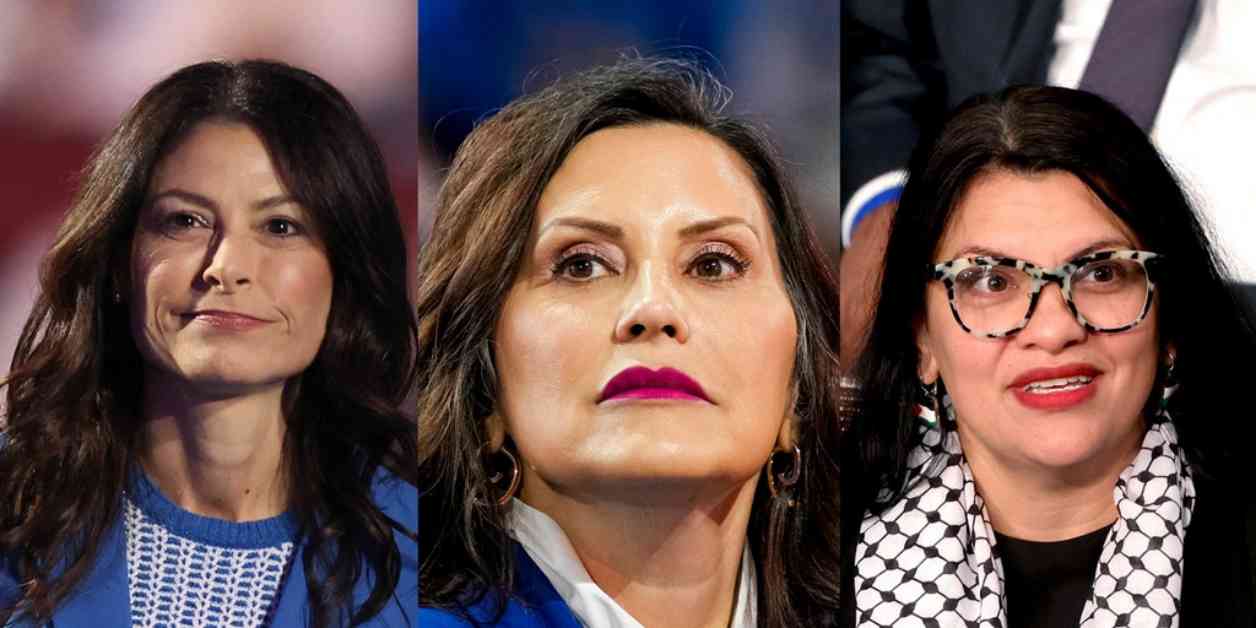Michigan Governor Gretchen Whitmer has chosen to remain neutral in the ongoing feud between Michigan Attorney General Dana Nessel and Rep. Rashida Tlaib. The dispute arose after Tlaib accused Nessel of targeting anti-Israel campus protesters at the University of Michigan because of her Jewish faith. In a recent interview with CNN’s “State of the Union,” Whitmer was asked whether she believed Tlaib’s accusations of bias were rooted in antisemitism. The Democratic governor carefully navigated the question, expressing concern for all communities affected by the conflict in the region.
Whitmer emphasized the importance of protecting and respecting all communities in Michigan under the law, including the Jewish, Palestinian, Muslim, and Arab populations. She acknowledged the challenges faced by these communities due to the ongoing conflict and reiterated her commitment to ensuring their safety and rights. When pressed further on whether she believed Nessel was neglecting her duties as Attorney General, Whitmer avoided taking a definitive stance on the matter, choosing instead to focus on her responsibilities as governor.
The feud between Nessel and Tlaib escalated when Nessel charged nine university students for refusing to leave anti-Israel encampments on campus. The charges included trespassing and resisting or obstructing a police officer. Additionally, two individuals were charged with attempted ethnic intimidation and malicious destruction of property at a separate protest. Tlaib criticized Nessel’s actions as “shameful” and suggested that the Attorney General was treating the issue differently because it involved Palestine, insinuating biases within the agency.
In response to Tlaib’s accusations, Nessel defended her actions and refuted any claims of religious bias. As Michigan’s first Jewish Attorney General, Nessel rejected the notion that her decisions were influenced by her faith and condemned Tlaib for using her religion to undermine her professional integrity. The public spat between the two prominent figures drew attention from various quarters, including the Anti-Defamation League CEO Jonathan Greenblatt, who urged Whitmer to unequivocally denounce antisemitism and support law enforcement efforts to maintain public safety.
Despite the mounting tensions and accusations, Governor Whitmer refrained from taking sides in the dispute between Nessel and Tlaib. As the leader of the state, Whitmer emphasized her commitment to upholding the rule of law, protecting all communities, and promoting dialogue and understanding among diverse groups. While the feud between the Attorney General and the Congresswoman continues to unfold, Whitmer’s measured response underscores the complexity of navigating sensitive issues related to religion, politics, and justice.
### The Importance of Neutrality in Leadership
Governor Whitmer’s decision to remain neutral in the face of the Nessel-Tlaib feud highlights the challenges of leadership in a polarized political environment. By refraining from taking sides, Whitmer seeks to uphold the principles of fairness, impartiality, and respect for diverse viewpoints. In a time when partisan divides often overshadow constructive dialogue, Whitmer’s approach underscores the importance of maintaining neutrality to foster unity and understanding among different communities.
### Balancing Justice and Freedom of Expression
The clash between Nessel and Tlaib raises important questions about the balance between justice and freedom of expression. While Nessel’s decision to prosecute individuals for violating the law aims to uphold public safety and order, Tlaib’s criticism underscores the need to ensure that individuals are not targeted based on their beliefs or backgrounds. The tension between enforcing the law and respecting the right to protest underscores the complexities of navigating contentious issues in a democratic society.
### Addressing Bias and Antisemitism
The accusations of bias and antisemitism in the Nessel-Tlaib feud point to broader concerns about prejudice and discrimination. As public figures in positions of influence, both Nessel and Tlaib have a responsibility to address these issues with sensitivity and integrity. By engaging in constructive dialogue and promoting mutual respect, leaders can work towards combating bias and fostering inclusivity within their communities.
In conclusion, Governor Gretchen Whitmer’s decision to refrain from taking sides in the feud between Attorney General Dana Nessel and Rep. Rashida Tlaib reflects her commitment to upholding the rule of law, protecting all communities, and promoting unity in Michigan. As the state grapples with complex issues related to religion, politics, and justice, Whitmer’s leadership underscores the importance of neutrality, dialogue, and respect for diverse perspectives. As the Nessel-Tlaib dispute continues to unfold, it serves as a reminder of the challenges and opportunities inherent in navigating sensitive issues in a diverse and democratic society.




